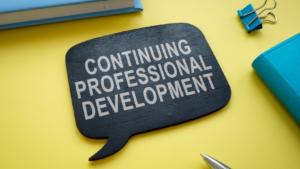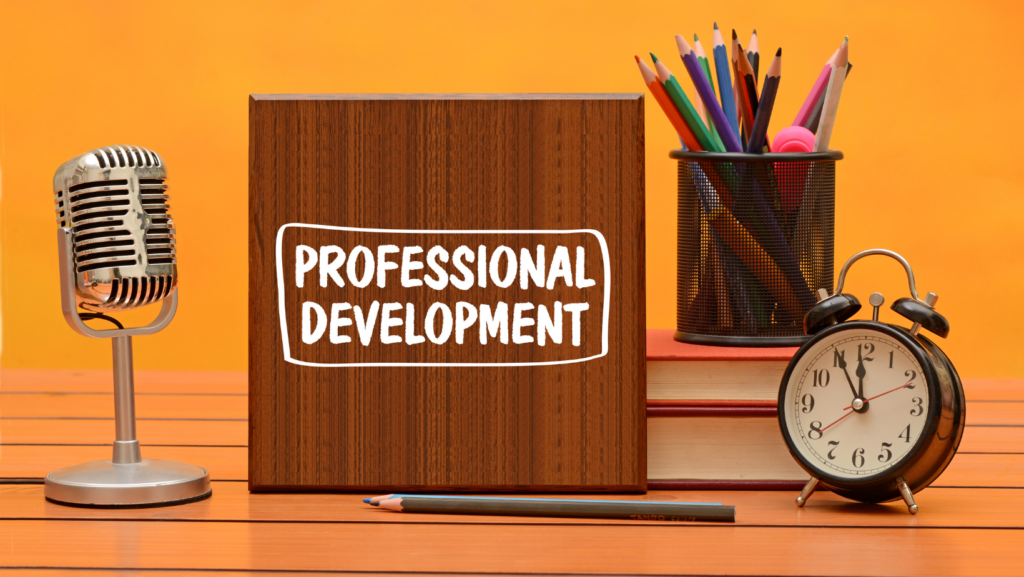In the fast-paced world of today, standing still is akin to moving backwards. That’s why professional development is more critical than ever. Whether you’re a fresh graduate or a seasoned professional, there’s always room to grow.
In this article, I’ll share some invaluable tips to help you stay ahead of the curve. We’ll explore strategies to enhance your skills, expand your knowledge, and boost your career progression. So buckle up, it’s time to take your professional journey to the next level!
Professional Development Tips

Diving deep into the essence of professional development tips, let’s explore its concept and how it varies from self-improvement.
Professional development tips, at its core, involves acquiring new skills, expanding current expertise, and climbing the ladder in a specific career path. Contrary to simply taking a course or attending a webinar, it implies a long-term commitment to constant learning and growth.
Yearly, more than 60% of employees engage in professional development activities, according to LinkedIn’s 2020 Workforce Learning Report. It’s a testament to its significance in the modern work environment. From an organizational perspective, this points to improved work quality, higher employee retention rates, and a more innovative and adaptive workforce.
Individuals, meanwhile, reap rewards in forms of better career prospects, job satisfaction, and personal fulfillment.
Professional Development vs. Self-Improvement
 While there is overlap between professional development and self-improvement, the two aren’t identical. Professional development pertains specifically to the advancement of professional skills.
While there is overlap between professional development and self-improvement, the two aren’t identical. Professional development pertains specifically to the advancement of professional skills.
It revolves principally around job-related knowledge and expertise, such as leadership or technical abilities. In contrast, self-improvement spans a wider range. It transcends the professional realm, encompassing aspects of personal life—emotional intelligence, time management, or resilience, for instance.
From an illustrative standpoint, pursuing a certification that boosts your career is a form of professional development. Meditating daily to manage stress better, on the other hand, falls under the umbrella of self-improvement.
Remember, both play pivotal roles in your overall growth, contributing to a well-rounded personality and a flourishing career.
Key Professional Development Tips
Professionals yearn for growth and relevancy, striving to engage in activities that enhance their skill set and knowledge base. Here are some several tips to foster this development process.
Setting Achievable Goals
Aim high, but remain realistic. Strategically set your professional development goals, aligning them with your career aspirations. As HR Development Review mentions, employees bolster their motivation, dedication, and efficiency when they set achievable, specific, and time-bound goals. For instance, aiming to become proficient in a new software tool within three months.
Continuous Learning and Education
Embrace continuous learning, don’t shy away from it. Lifelong learning paves the pathway to professional growth, as posited by the World Economic Forum’s Future of Jobs Report. Enhancing your education by pursuing higher studies, online courses, or professional certifications can make you an asset in your work arena. For example, a marketing executive might pursue a digital marketing certification to stay abreast of the latest online trends.
Networking and Mentoring
Establish a robust professional network; tap into the treasure trove of knowledge brought by mentoring. According to data from the American Society for Training and Development, 75% of private sector executives affirm networking’s importance in achieving career goals. Regular interactions with industry peers, attendance in webinars and conferences, and cultivating a relationship with a mentor can immensely contribute to professional growth.
Implementing Professional Development Plans

To elevate the impact of professional development tips, two important elements are paramount- assessing your personal needs and skills and creating a suitable action plan.
Begin by conducting a comprehensive skills assessment. This self-reflection isn’t just about understanding what I know already. Instead, it provides a unique opportunity to identify potential gaps in my skills and knowledge base. To be thorough, consider engaging reliable online tools, such as SkillScan, or real-time feedback from professionals in my network. It’s also worthwhile to compare my skills with industry standards or job requirements. Such a comparison might highlight areas for improvement that weren’t initially apparent. With this assessment, I can cultivate a key step in my professional development- addressing specific, necessary improvements rather than embracing a one-size-fits-all approach.

